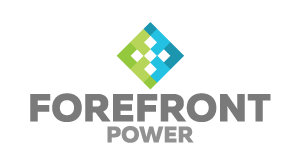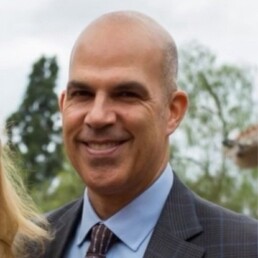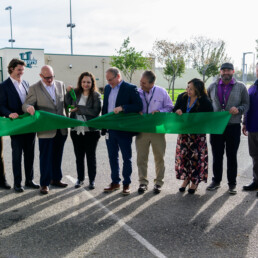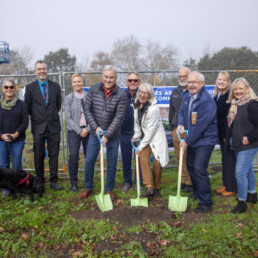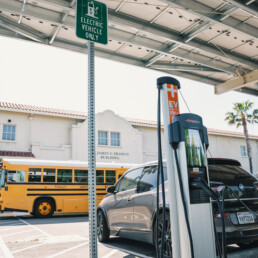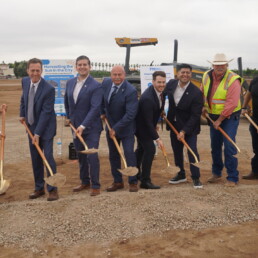In honor of Pride Month, we spoke to ForeFront Power Senior Marketing Manager Jesse Prier to hear about his experience as a member of the LGBTQ+ community in renewable energy and learn about the importance of Pride.
Where are you from originally?
JP: I grew up in Portland, OR, so a long-time West Coaster here. However, I’ve had stints in the Midwest, the U.S. South, China, and the South of France.
What do you like to do in your free time? Do you have any hobbies?
JP: Before the pandemic, I was focused on climbing. When the pandemic started, I got more into surfing. These days, I’m cycling. All that to say, my hobbies feel a bit like a “jack of all trades, master of none” kind of arrangement.
Speaking of cycling, a key way I’m celebrating LGBTQ+ Pride this month is with my inaugural endurance cycling event. I just completed the AIDS Life Cycle, a 545-mile ride over 7 days, the trek spanning from San Francisco to L.A. It’s the “world’s largest single-event HIV/AIDS fundraiser,” organized by the SF AIDS Foundation and the Los Angeles LGBT Center, with thousands of riders each year.
I was inspired to do this ride by friends currently living full, beautiful lives while HIV-positive and also by generally feeling a gap of older gay and queer folks in my community. When those in their youth during the 1980s and 90s share stories of loved ones who lost their lives during that time of government silence and inaction on the matter, I find myself struck by a sense of loss, grief, and anger. I’m looking to channel those emotions into action by raising funds to make a difference now, and I’m really proud to say that our small team of 12 has raised over $60K to support treatment for those living with HIV/AIDS and for continued research for a cure. I’m looking forward to seeing the final total raised by the event at large.
I do want to acknowledge that while HIV and AIDS are not “gay diseases” and that they affect people of all sexualities, we’d be remiss if we forgot the history of how this disease permanently impacted our LGBTQ+ community through the lives it took. In addition to all the great treatments now available to those impacted by the disease, I’m optimistic that our generation will find a cure.
Who was one of your childhood heroes?
JP: My heroes have tended to be the political rebels and activists–those willing to sacrifice personal comfort for the betterment of the collective.
Having grown up religious, my heroes as a kid were rebels for their faith, even imprisoned for sharing what they held deep conviction was “good news.”
As I got older and identified less with religion, I noticed that my heroes tended to be activists like Nelson Mandela, also imprisoned for his political views that apartheid should end.
What led you to the renewable energy field?
JP: I lean hard into being a mission-driven person, I found myself out of college in the midst of a recession looking for a way to have an impact with my 40+ hours per week.
I initially decided that a career in clean water would be a practical way to improve life for many across the globe, and that led me to my first internship at the China Greentech Initiative in Beijing. From there, I learned about renewables on a global scale, and I’ve been working in climate tech and solar ever since.
How did you find ForeFront Power?
JP: A former colleague from my days in large-scale solar at Recurrent Energy worked at ForeFront when the company was just starting out. When the ForeFront recruiter reached out, I was pleasantly surprised to also learn more about the culture, the great benefits, and the opportunities at the company as well.
What excites you the most about the renewable energy industry today?
JP: While the industry certainly faces its headwinds via frequent threats of tariffs and high steel prices at the moment, and while more U.S. states really need strong state-level policy incentivizing the clean energy transition – noting that fossil fuels have received subsidies and incentives for generations – I see a lot of opportunity for clean energy ahead.
The ramp-up of vehicle electrification excites me as a trend leading to increased demand for renewables. I see the increase in net-zero commitments from both the public and private sectors as a promise of continued demand for renewables. I see carbon emissions reporting moving toward standardization as an opportunity to better measure corporations against their sustainability commitments, ideally sparking more action.
June is Pride month in the U.S. What does Pride mean to you as a member of the LGBTQ+ community? Why is it important to celebrate it?
JP: For a few years after coming out, I actually had a difficult time embracing Pride as a celebration that I identified with. A lot of that internal struggle was the result of the rhetoric I’d grown up with that led me to associate rainbow flags with a supposed “war on the family.” When I came out, I was simply interested in being myself.
I realized over time that the only way I was able to be myself as a cis, white, gay male in society today is the result of those before me – particularly queer people of color – who stepped out, took risks, faced difficulty, and danger to say that “we’re here, and we will not be erased.”
Even though we’ve made great strides in recent years in the U.S., it still doesn’t feel safe as a non-straight person to simply hold hands with your own life partner in many, many locations in the U.S. – even in blue states. That’s been the experience of relatively privileged members of my community who are white, cis, and even “straight passing.” How much worse does it remain for folks who are black, trans, and maybe born with a little more flair?
Pride is among the most American of celebrations we have. It’s about one’s right to live, to exercise liberty, and to pursue one’s own happiness. Until all of us feel safe walking down American streets holding hands with the one we love, the LGBTQ+ community continues to need visibility, to have our history remembered, to have our stories heard.
How would you like to see the renewable energy industry demonstrate its support for the LGBTQ+ community? What work still needs to be done?
JP: I’m encouraged by the early-stage work of Clean Energy Pride, a grassroots group birthed out of Solar Power International in 2019 (an annual event now rebranded to RE+). This group of queer folks and allies is seeking to support the clean energy queer community, ensure that the industry is hearing and addressing our needs, and provide solidarity through the network.
I’m encouraged to see parental leave policies adapting to different family structures. I’d look forward to seeing the clean energy industry improve family planning benefit packages to support the needs of queer employees.
I was always told that the gays were anti-family, but we’re actually among the most pro-family groups out there. Where we haven’t had the luxury to be around a supportive birth family, we’ve stuck tight with our chosen families. As science progresses, we queer folks have increasingly more options to start our own nuclear families as well.
What can energy organizations do to advance DEIJ and create more welcoming spaces for all people?
JP: Aside from specific actions that companies can take including creating health/benefits packages with LGBTQ+ employees also in mind, there are things we all as coworkers can do to foster a more inclusive workplace.
Make it clear to your LGBTQ+ colleagues that we don’t have to hide how our family looks, that we can discuss our romantic partners just like anyone else would without fear of judgment, of being “othered,” or of facing some unspoken repercussions in workplace dynamics.
I love that I always feel right at home at ForeFront Power. I’ve never felt a twinge of “Does this person think differently of me now? Are things awkward now that I mentioned my (male) partner?” I’ve always been treated with the utmost respect by ForeFront Power employees, and I’m proud to call these folks my team.
What are some ways that LGBTQ+ energy professionals can help the renewable energy industry become more inclusive?
JP: Proactively offer your pronouns. We non-trans members of the community can do a lot to create supportive spaces for the trans folks we know and love. We all know that the trans and non-binary communities are under a lot of fire politically in the U.S. right now, and I’m hopeful that my actions can make it a little easier for these folks to show up to work or other professional contexts and to give their professional best, free of concerns of censoring themselves or feeling like any type of spectacle. Trans and non-binary folks, we love you and want your best contributions, just like we would of anyone else.
What advice would you give to people pursuing energy careers today?
JP: Career paths do not always have to be linear, and increasingly, we’re seeing industries embrace this philosophy as well. If you’re like I was when I graduated college–laden with student debt and without the financial means to take work-for-free internships or poorly paying jobs at 40 hours a week, there is still a lot you can do to break into the renewable industry.
Hiring managers appreciate hustle. If you put in work – educating yourself on renewable energy technologies and policy, engaging in industry networking events to meet folks, pursuing what you can outside your non-renewables 9-to-5 – the right hiring managers will notice your drive, passion, and the potential you offer their team.
The other great thing available to you at this phase of the pandemic is the return of in-person networking events. Folks in solar love to drink. Go to happy hours (and get a mocktail or kombucha if you prefer!), make friends, and get to know the humans in your field. Go to coffees and pick people’s brains on topics you’ve put effort into researching. Learn how those in the industry trenches are overcoming challenges being faced right now.
With determination, you’ll successfully break into the field of renewables that is full of great humans, that can often come with great benefits packages (shameless plug: ForeFront’s benefits package is strong), and that can provide the setting for a fulfilling career.
Interested in learning more?
We would love to discuss how our solutions might be a fit for your organization. Contact one of our solar, storage, or e-mobility experts today:
